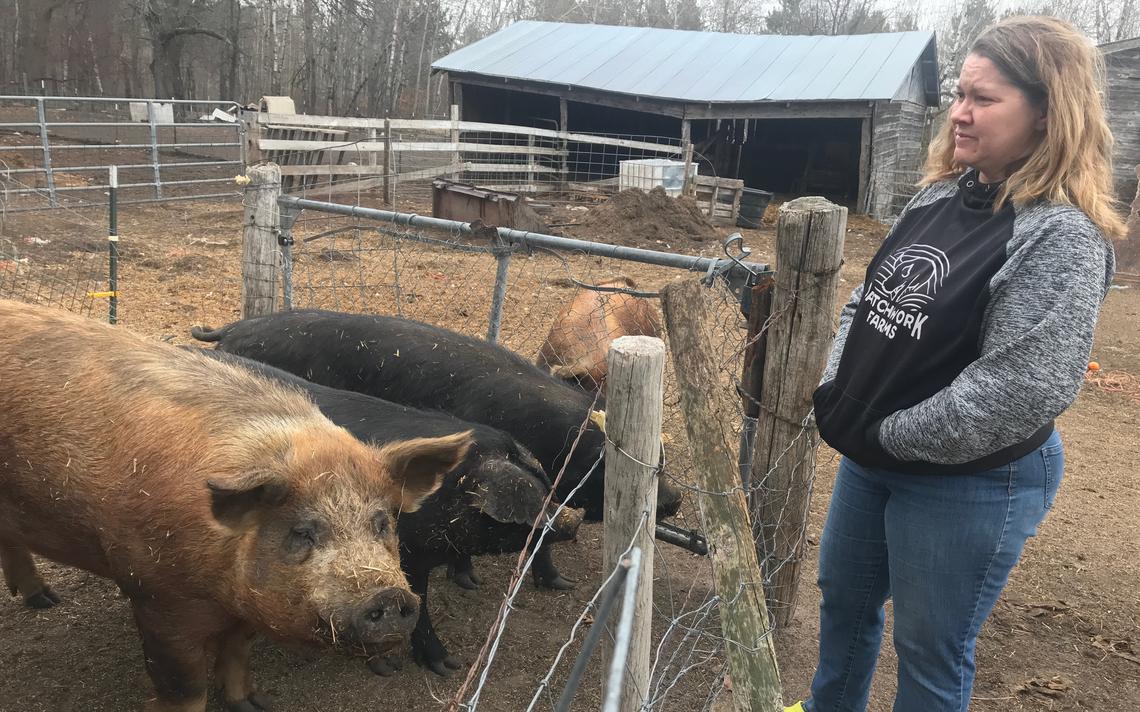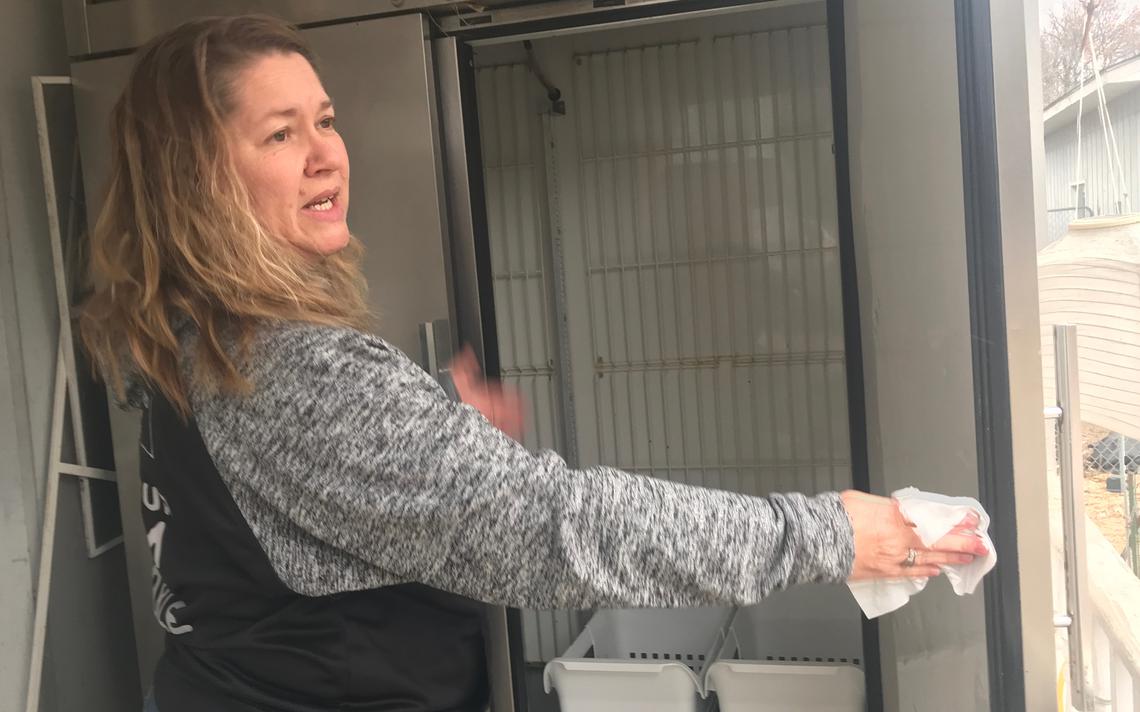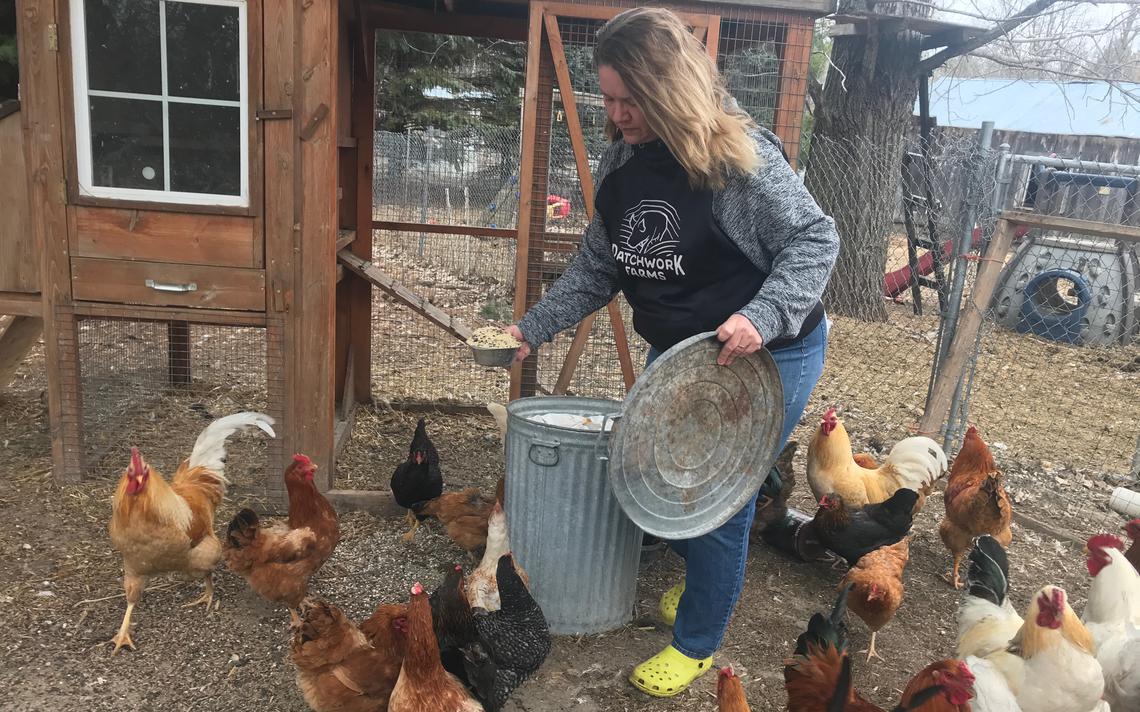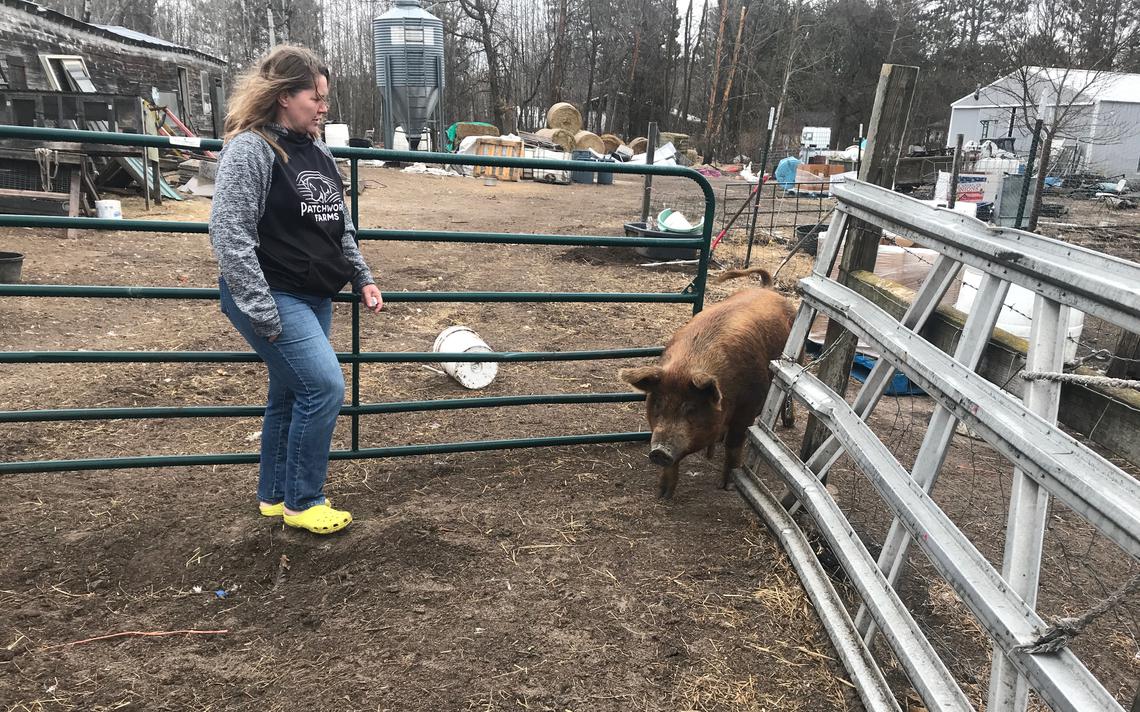|
Written By: Chelsey M. Perkins, Brainerd Dispatch Producers believe what’s driving a spike in local farm business is a combination of people not wanting to shop in stores due to health concerns associated with the novel coronavirus, along with rising prices and limited availability of some meat and dairy products. NISSWA — Some farmer’s markets begin next week, and Gayle Stevens won’t have much pork to sell. The amount of money she might earn in a whole month during a typical early spring is coming in three to four times a week right now, flowing from both returning customers as well as new patrons of Patchwork Farms. The small heritage pig farm also sells eggs and beef, and Stevens made changes to allow for no-contact transactions on her front porch. She believes what’s driving a spike in her farm’s business is a combination of people not wanting to shop in stores due to health concerns associated with the novel coronavirus, along with rising prices and limited availability of some meat and dairy products. “I took in three pigs to the butcher yesterday (Wednesday). We start markets next week and I won’t even have the meat back yet,” Stevens said by phone Thursday, April 30. “I’ll have a limited supply of my pork products. Then he (the butcher) can’t get me back in until June. Three pigs’ worth of meat will probably be gone in the month of May.” Stevens said she can hardly keep up with the phone calls and isn’t able to help everyone who inquires. She recently received a phone call from a manager of multiple group homes in the area who is having trouble purchasing enough meat to feed 32 people. This is because of quantity limits placed on things like pork roasts and packs of chicken at grocery stores, she said. An impending pork deficit prompted Stevens to pivot Thursday — she placed rolling orders for about 800 Cornish cross chicks, which she’ll raise into broiler chickens. Ordering them all at once was another atypical move, but hatcheries are also overwhelmed with orders. Many aren’t able to ship new orders until late June or July. “We’ll do more chickens this year and some quail also. I thought, well, if I can’t supply enough pork and beef for a little bit just because of how busy my butcher is and I can’t get in until June. … I can get 100 (chicks) next week,” Stevens said. Laurence Fox of Fox Farm Pork in Browerville said he’s hearing similar stories from a number of small, local farmers who use his licensed butchering services, including Stevens. He’s booked solid for the next two months and mostly the rest of the year, when accounting for the 15 other small producers with whom he regularly works. “We’re busier than ever,” Fox said by phone Friday. “...Their freezers are all empty, and they’ll be running out of pigs by mid-summer to early fall. It’s just wiping us out. “ … I was going to expand last summer and I decided to wait until this summer. Now I wish I had the extra space to operate.” Sales increases in local foods as a result of the pandemic aren’t limited to meat and dairy. Arlene Jones of Sprout MN, a food hub based in Little Falls, said they’ve experienced a significant uptick in people purchasing community-supported agriculture shares, or boxes of produce and other local products delivered to consumers on a weekly or biweekly basis. This, in turn, is prompting produce farmers to ramp up their production. “A lot more people are looking at purchasing CSAs as they’re seeking alternative resources to going out in public and shopping,” Jones said. Jones said she’s seen other impacts, too, that seem promising for the local foods movement as people look inward to their own yards and communities as resources. “I think people who’ve always wanted to can and do food preparation are really going to find joy in that this year,” she said. “... I know people who have never gardened who are plowing up land to garden. It’s not like we’re doing victory gardens, but it’s pretty close.” Jones said Sprout also submitted a proposal for the U.S. Department of Agriculture’s Farmers to Families Food Box program as part of the Coronavirus Farm Assistance Program. The program will seek to distribute up to $3 billion of agricultural products to those in need, partnering with regional and local distributors. “We’ve gotten federal grants, but we’ve never actually contracted for distribution with the federal government as a method to support what they term small American family farmers,” Jones said. Pig problemsFox said he sees irony in high sales figures for what he described as premium-priced pork while the marketplace is flooded with thousands of cheap hogs. This is because larger-scale pig farmers are seeking to unload livestock directly to the public due to the closure or limited operation of meat processing operations across the Midwest. Those not sold are being euthanized in droves.
The hogs may be cheap, but openings with butchers are extremely difficult to come by, meaning many of those purchasing the hogs will likely have to butcher the animals themselves. Stevens said she’s beginning to hear from people wondering whether she would butcher a pig they’re considering purchasing from another farm at a bargain. “We can’t butcher for other people, and I can’t bring those hogs onto my place,” she said. “There could be diseases crossing over and I could lose my whole herd. Also, they are white meat pigs, and that’s not what I produce. … I have friends that are doing it, I’m not against people doing it. It’s not hurting my business.” What she can do is offer butchering advice for those who’ve never done it. And that’s basically the only viable option to those buying live pigs direct from farms. Waiting until a spot opens up with a butcher might mean a couple of months of feeding a pig that’s prime butchering weight, at which point the cost of feed outweighs the value of the meat. “If you’ve got deer hunters in your family, you guys can debone a pig,” Stevens said. “It’s a bigger animal but you can do it the same way.” Meanwhile, freezer and refrigerator space at Sprout’s Little Falls food hub facility may be made available to local farmers in need of more holding capacity for their butchered livestock. Jones said they’re working with the Minnesota Department of Agriculture to make those connections. CHELSEY PERKINS may be reached at 218-855-5874 or [email protected]. Follow on Twitter at twitter.com/DispatchChelsey. Comments are closed.
|
Categories |



